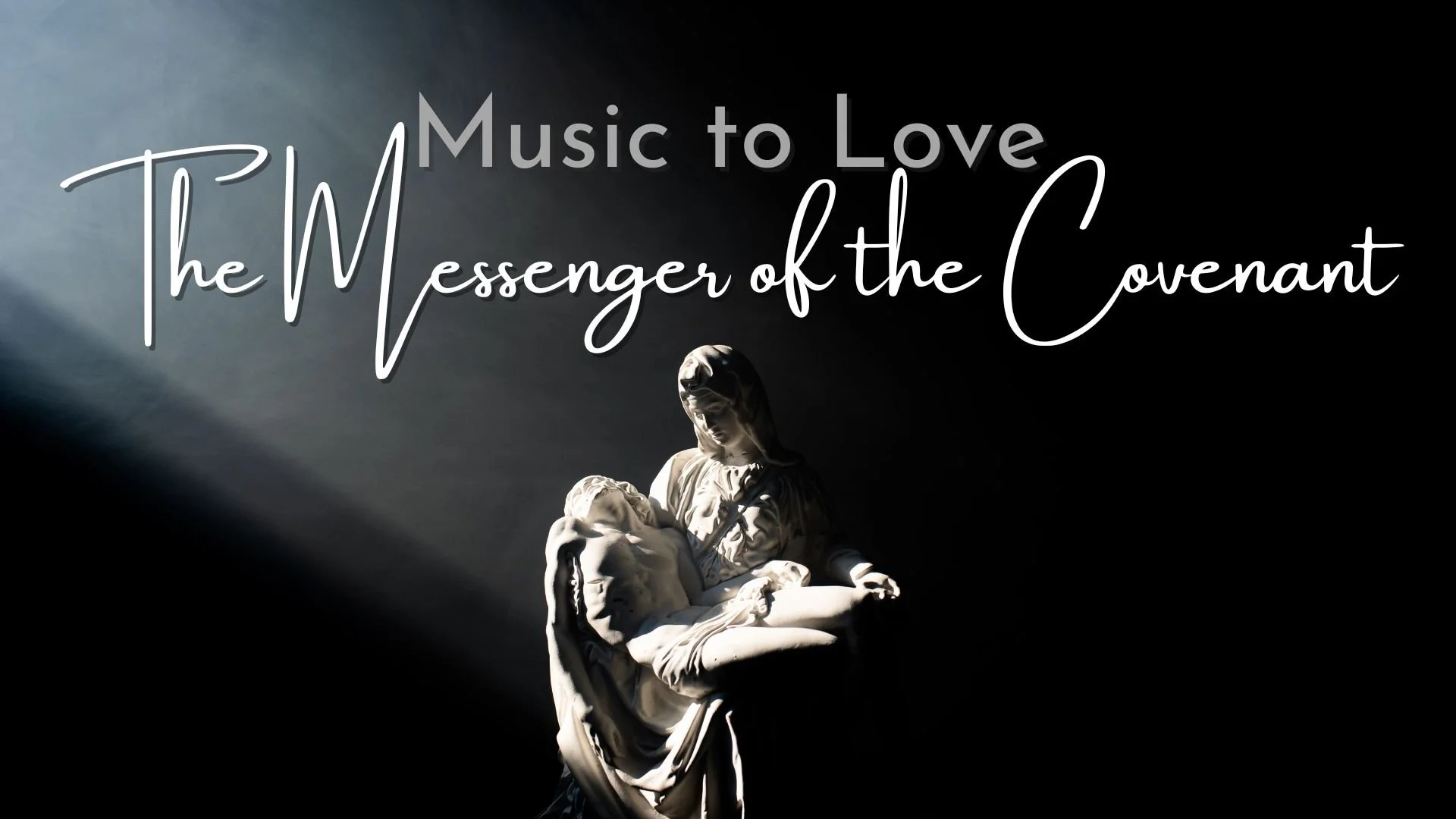Films to Love: The Hero Mother
Of late I have read quite a number of articles and editorials bashing the concept of parental intuition, specifically a mother’s intuition.
The very nature of the meaning of the word intuition makes it a nebulous case study for scientists. Intuition is the faculty of knowing or understanding something without reasoning or proof. It’s a gut instinct, an inherent knowing. (To be clear, none of the articles/editorials that I have read were composed by scientists nor did they cite studies or scientific data or past precedent to augment their suppositions.)
And as a mother, I can personally attest that it is very real and true where one’s child is concerned. There is even biological precedent known as fetal-maternal microchimerism in which baby’s cells slip from baby into mama’s body and are stored there for the rest of the mama’s life. This phenomenon means that while a mother will give birth to her child and that child will grow and ultimately leave his or her parents to establish their own life, the mother will always carry that child within her. Science is only now beginning to explore this phenomenon, but even their preliminary explorations are yielding fascinating discoveries of the indelible bond between mother and child, regardless of age, time, or distance.
While all this may be new to scientific study, each one of us will know of a time when our moms just KNEW something about us, whether it was something bad that we did or if something was off with us physically or emotionally. You know what I’m talking about. Mom just knew something her kid had done or needed, and by revealing that knowledge to her child, she solidified herself in that place of uneasy awe. You can’t fool mom, she knows everything. This is because you are part of her always.
Today I am sharing a movie with you that I have been mulling over for several years. One would not traditionally associate it with Mother’s Day, but it celebrates a mother’s intuition with superb alacrity and therefore fits today’s bill perfectly.
Loving mothers are the most amazing creatures. Within one body is housed the capacity for limitless unconditional love, unending compassion and understanding, infinite gentleness and patience, and unmatched ferocity and potent, defensive anger. She can go from nurture to nuclear in a second if she believes her child is in danger. The proverbial saying my be that you don’t mess with the bull for fear of the horns, but not even a bull will tangle with a mama bear.
A loving mother wants only the best things for her child. In the case of multiple children, she has the profound capacity to understand each one and sense inherently each of their individual needs. This is cellular. This is also spiritual.
A mother cannot always explain why she knows something about her child, and, honestly, she doesn’t have to. It is a sacred, unbreakable link that should never be mocked or dismissed by persons who believe credentials can raise a child better than the woman who ushered their body into this world and nurtured them throughout their life.
In Light in the Piazza, we see this truth in stunning technicolor. Olivia de Havilland plays Meg Johnson, a wife and mother, traveling through Europe with her daughter, Clara. Clara is a beautiful and sweet young woman who possesses a childlike demeanor, an inherent innocence, that endears her to others immediately. However, Meg keeps a very watchful eye on her. While Clara may be 26 years of age, she had a accident when she was young child that inhibited her mental growth faculties. She has grown into womanhood, but in many ways, she has not progressed passed her early teens.
Aside: By our modern standards, we would equate Clara’s condition to being midway on the Autism spectrum. She functions, is intelligent, and can groom and care for herself. Yet, she is stunted and awkward when placed up against the norms of society.
While in Florence, Meg and Clara meet a young Florentine, Fabrizio Naccarelli. The rapport between Clara and Fabrizio is instantaneous. And while Meg knows all the reasons why she should put the brakes on the burgeoning relationship between the two, she cannot help but watch with wondrous fascination how Fabrizio and Clara understand each other on a fundamental level. The oddities that would often be remarked upon in the States are found to be charming and endearing in her daughter in Italy. Furthermore, Fabrizio himself exudes the same sort of childlike innocence and simplicity.
As the relationship between the two becomes more simpatico, Fabrizio’s father, played by the ever debonair Rossano Brazzi, steps in and insists that Meg and Clara come to him home to meet Fabrizio’s family. It is here that Meg begins to understand that Clara could have a true future with a husband and family around her. The family unit in Italy differs greatly from that in the States. The Naccarelli family is wealthy. If Clara were to marry Fabrizio, she would have a maid and a cook; therefore, the housekeeping would be no worry for her. And, if and when children should come, Clara’s mother-in-law, as was customary, would step in to act as nanny. Clara would live a life of ease with little demanded upon her other than to be a loving wife and mother.
However, as Fabrizio’s intentions to wed Clara become more and more clear, Meg realizes that she cannot proceed without telling her husband, a wealthy business executive in a cigarette company in Winston-Salem. She phones him and insists that he come immediately to meet them in Rome. This serves two purposes. The first is separating Clara from Fabrizio to see if she is truly as in love with him as she seems. The second is providing a neutral ground to tell her husband about the relationship without him going directly to the Naccarelli family and sabotaging it.
Needless to say, when Meg informs her husband about Fabrizio and Clara, he dismisses it as impossible. Furthermore, we garner insight into the relationship between Meg and her husband. Since Clara’s accident, Meg has lived exclusively for her daughter. While she does still love and care for her husband, his needs as well as her own have taken a backseat. Clara comes first.
This attitude has taken a negative toll on their marriage. In Rome, Meg is faced with a man who desperately wants his wife back. He is so desperate that he has unilaterally enrolled Clara into home upon her return to the States where she will live with other men and women who suffer from similar conditions. While this may seem barbaric in some ways, it is important to remember that in the 1950s and early 60s, children that dealt with developmental issues were believed to be better served in a large home dedicated to their own kind than out in society. This was considered normal and humane, blessed by doctors and experts alike.
Now Meg stands at a crossroads. Her husband, the doctors, the experts, and society at large tell her that placing Clara in a home will be best for her. But something deeper, something intuitive rejects this out of hand. What sort of life is that for her daughter?
Meg cannot accept that there will be no future for her little girl, even if the doctors say she will never be able to function properly in society, by society’s own trendy standards, of course.
Drawing deeply upon the mother’s intuition that resides within her, Meg makes a decision. Does she second guess herself? Certainly. Any loving mother does. But she moves ahead, spurred on by her love for Clara and her desire to see her daughter with a rich, full life.
At the conclusion of the film (forgive me for giving so much of the movie away as to plot), Meg watches her daughter and sees with stark clarity that she made the right decision.
Light in the Piazza was made in 1962. As I mentioned above, the cultural and societal norms went completely against Meg Johnson’s motherly intuition. Not only did she face the displeasure of her husband, but of every other person who understood Clara’s condition. Meg’s own husband berates her for being foolishly hopeful when there is no hope.
But, you see, that is precisely what a mother does. History has catalogued too many stories of how a mother’s love and intuition drove her to disregard doctors, teachers, and a host of other experts declarations over her child to nurture that same child into the greatness he or she would achieve. This love and intuition finds its home in Hope, a unending, refuse-to-surrender, never say die hope that her child will meet the fullness of their life head on.
Most notable would be Thomas Alva Edison. When he was a young boy, he came home with a note he handed to his mother from his teacher. He had been given the assignment to give it only to his mother to read. A dutiful little boy, he did just that, eagerly waiting for his mother to read him the letter’s contents. "Your son is a genius. This school is too small for him and doesn’t have enough good teachers for training him. Please teach him yourself,” his mother read aloud to him. And that’s what she did. Edison’s mother schooled him at home, nurtured his interests, and tailored his curriculum to her son’s strengths. Years later, when Edison was going through family papers, he found the letter. Not a single word his mother had said to him was written in the letter. Rather it said: "Your son is addled [mentally ill]. We won’t let him come to school anymore." Edison’s mother’s intuition coupled with her love for her son gave her the strength and courage to defy academia. That intuition nurtured a genius whose inventions shaped the modern world. As Edison himself wrote:
“Thomas Alva Edison was an addled child that, by a hero mother, became the genius of the century.”
I’m certain that we all are aware of a instance from family, friends, or acquaintances where we have seen something similar to the above story played out.
A mother’s intuition is born out of the purest love. it is nurtured in that same love. And when a mother follows her intuition in the face of being called crazy or irresponsible, it is because that love for her child is so indelibly strong within her that she must follow it.
It takes great courage and strength of conviction to be a mother. It is the most demanding, exhausting, and, often, thankless job that a woman will undertake. And yet, in the midst of the rough and tough, it is the finest reward, the grandest adventure, the truest achievement. For as a mother, a woman is entrusted with the future; the next generation is in her care, and her love is the most costly thing because it will nurture, protect, and produce the greatness that is to come.
The Bible says that children are a heritage from the Lord. Each child born is touched with the Divine, formed in the womb with a purpose and a plan for his or her time on this earth, and a mother is the trusted vessel from which that child will grow and take his or her place in the world. When she accepts the mantle of motherhood, she is stepping into a heroism that is too often unseen and unacknowledged.
This is why Mother’s Day is a day which should always be celebrated, for it is a day set aside to applaud and honor the women who have raised us to be our greatest selves. Honor your mother. It is a commandment, but the only commandment with a promise attached. Honor your mother that it may go well with you in the future.























































